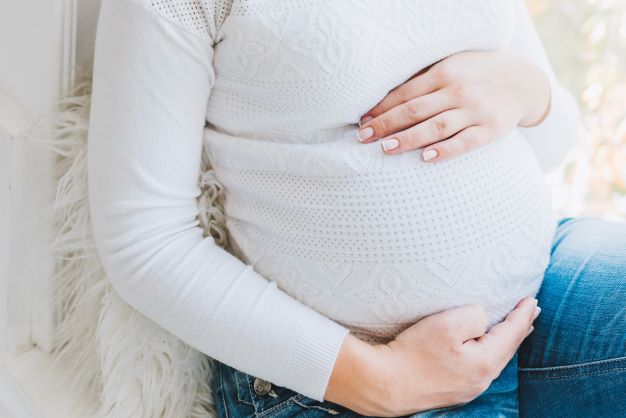Search
Research
Educators’ Barriers and Facilitators to Physical Activity Policy Implementation in the Childcare Setting: Qualitative Findings From the Play Active ProjectWe explored childcare educators’ perceived barriers and facilitators to policy implementation in order to inform the development and implementation of an early childhood education and care (ECEC) specific physical activity policy. This study was part of the Play Active (2019-2023) project which aimed to develop, implement and evaluate evidence-based physical activity policy to improve physical activity levels in children attending ECEC.

News & Events
Free vaccines for pregnant mums see monumental rise in protection for WA babiesNew collaborative research involving almost 600,000 pregnant mothers has demonstrated a dramatic increase in uptake of the whooping cough (pertussis) vaccine after identifying just 22 per cent of WA women had the maternal vaccination between 2012 – 2017.

News & Events
Top honour for infectious diseases researchCongratulations to Associate Professor Asha Bowen, who has been awarded the 2022 Frank Fenner Award for Advanced Research in Infectious Diseases.
Research
Mind the distance: experiences of non-face-to-face child and youth mental health services during COVID-19 social distancing restrictions in Western AustraliaFollowing the outbreak of COVID-19, social distancing restrictions limited access to face-to-face mental health services in Western Australia (WA), necessitating a rapid transition to non-face-to-face alternatives, including telehealth. The current study investigated barriers and facilitators to telehealth access and engagement, and preferences for child and youth mental health service delivery during and beyond COVID-19.

News & Events
The Kids Research Institute Australia research teams supported by WA Near-Miss AwardsSeven important The Kids Research Institute Australia research projects have received support from the Future Health Research and Innovation Fund through the WA Near-Miss Awards (WANMA).
Research
A quality improvement study: Optimizing pneumococcal vaccination rates in children with cochlear implantsChildren with cochlear implants are at increased risk of invasive pneumococcal disease, with national and international guidelines recommending additional pneumococcal vaccines for these children. This study aimed to examine the pneumococcal immunization status and rate of invasive pneumococcal disease in children with cochlear implants at a tertiary paediatric hospital over a 12-year period.
Research
Dental procedures in children with or without intellectual disability and autism spectrum disorder in a hospital settingThis population-based cohort study investigated dental procedures in the hospital setting in Western Australian children with or without intellectual disability (ID) and/or autism spectrum disorder (ASD) aged up to 18 years.
Research
Hybrid closed-loop therapy with a first-generation system increases confidence and independence in diabetes management in youth with type 1 diabetesHybrid closed-loop (HCL) therapy improves glycaemic control in adolescents with type 1 diabetes; however, little is known about their lived experience using these systems. The aim of this study was to explore the lived experiences of youth with type 1 diabetes using HCL therapy, and their parents, to provide insight into their lived experiences.
Research
Dysphagia in laryngomalacia: a prospective cohort studyDysphagia is an under recognised co-morbidity in patients with laryngomalacia. Its rate is variable reported in the literature. We aim to describe the incidence of dysphagia in laryngomalacia, the effect of interventions on this, and the period it persists in these infants.
Research
High prevalence of mgrB-mediated colistin resistance among carbapenem-resistant Klebsiella pneumoniae is associated with biofilm formation, and can be overcome by colistin-EDTA combination therapyThe global prevalence of colistin-resistant Klebsiella pneumoniae (ColRkp) facilitated by chromosomal and plasmid-mediated Ara4N or PEtN-remodeled LPS alterations has steadily increased with increased colistin usage for treating carbapenem-resistant K. pneumoniae (CRkp).
